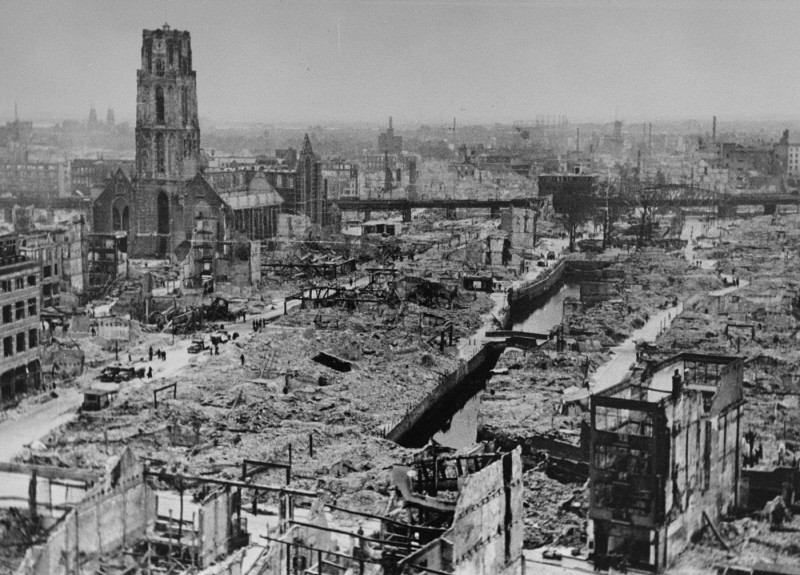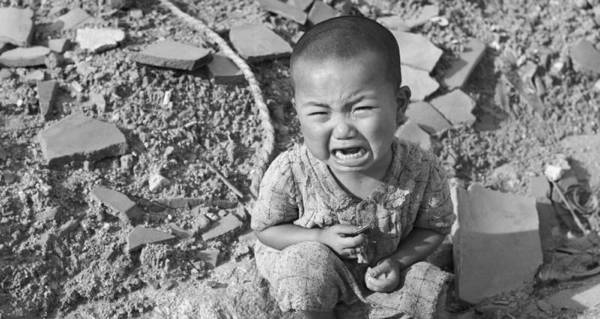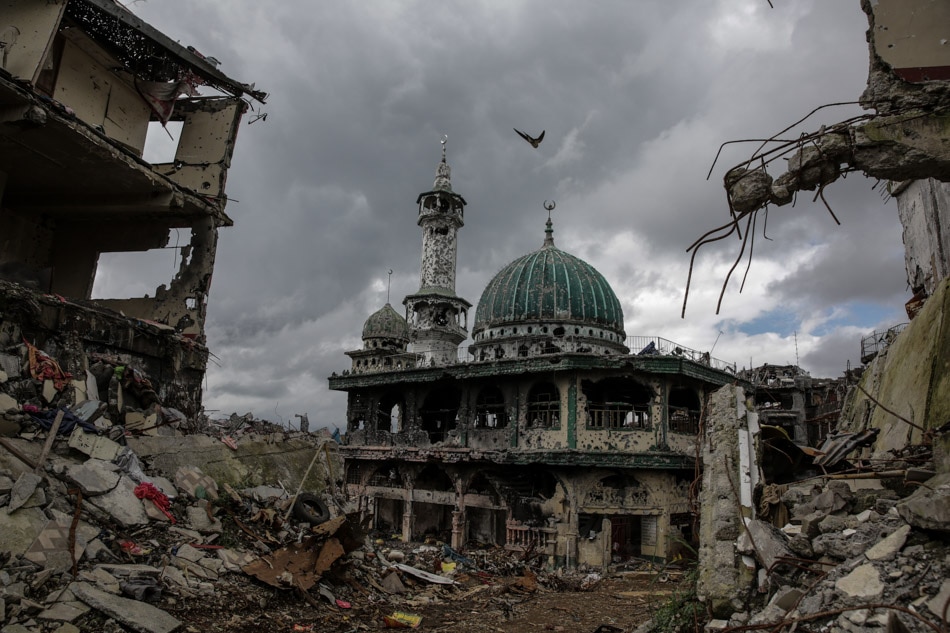

The aftermath of World War II saw the rise of communist influence in East Asia, with the People's Republic of China, as the Chinese Communist Party emerged victorious from the Chinese Civil War in 1949. Independence for the nations of Sub-Saharan Africa came later. Independence was granted to India and Pakistan (from the United Kingdom), Indonesia (from the Netherlands), the Philippines (from the US) and a number of Arab nations, from specific mandates which had been granted to great powers from League of Nations Mandates. The end of the war opened the way for decolonization from the great powers. This effort primarily began as an attempt to avoid another war between Germany and France by economic cooperation and integration, and a common market for important natural resources. The devastated great powers of Western Europe formed the European Coal and Steel Community, which later evolved into the European Economic Community and ultimately into the current European Union. Members of the United Nations agreed to outlaw wars of aggression in an attempt to avoid a third world war. The war also saw a nuclear arms race between the two superpowers part of the reason that the Cold War never became a "hot" war was that the Soviet Union and the United States had nuclear deterrents against each other, leading to a mutually assured destruction standoff.Īs a consequence of the war, the Allies created the United Nations, an organization for international cooperation and diplomacy, similar to the League of Nations. Internationally, alliances with the two blocs gradually shifted, with some nations trying to stay out of the Cold War through the Non-Aligned Movement. Europe was divided into a US-led Western Bloc and a USSR-led Eastern Bloc. Western Europe and Asia were rebuilt through the American Marshall Plan, whereas Central and Eastern Europe fell under the Soviet sphere of influence and eventually behind an " Iron Curtain". It was instead characterized by espionage, political subversion and proxy wars. Once allies during World War II, the United States and the Soviet Union became competitors on the world stage and engaged in the Cold War, so called because it never resulted in overt, declared total war between the two powers. The war's aftermath was also defined by the rising threat of nuclear warfare, the creation and implementation of the United Nations as an intergovernmental organization, and the decolonization of Asia and Africa by European and east Asian powers, most notably by the United Kingdom, France, and Japan. Dept.Two global superpowers, the Soviet Union (USSR) and the United States (US), rose in the aftermath of World War II. Sherman tanks moving out near Bretteville-le-Rabet, France, 14 August 1944. There was increased urbanization, industrialization, state intervention in the lives of Canadians, interconnected trade with the United States, and a widespread desire for greater commitment in world affairs.Ī new Canada emerged from the service and trauma of the war.

More than a million veterans came home to lead Canada into the prosperous second half of the twentieth century.

The war also led to the decolonization of empires, the creation of the United Nations, and a new Cold War between the United States and the Soviet Union, and their respective allies.Ĭanada was also fundamentally transformed.

Revelations of the Nazi atrocities and the Holocaust shocked the world. Death tolls range from 50 to 80 million people.Ĭanada contributed significantly to the Allied victory in this just and necessary war. The human devastation of the Second World War is difficult to comprehend.


 0 kommentar(er)
0 kommentar(er)
